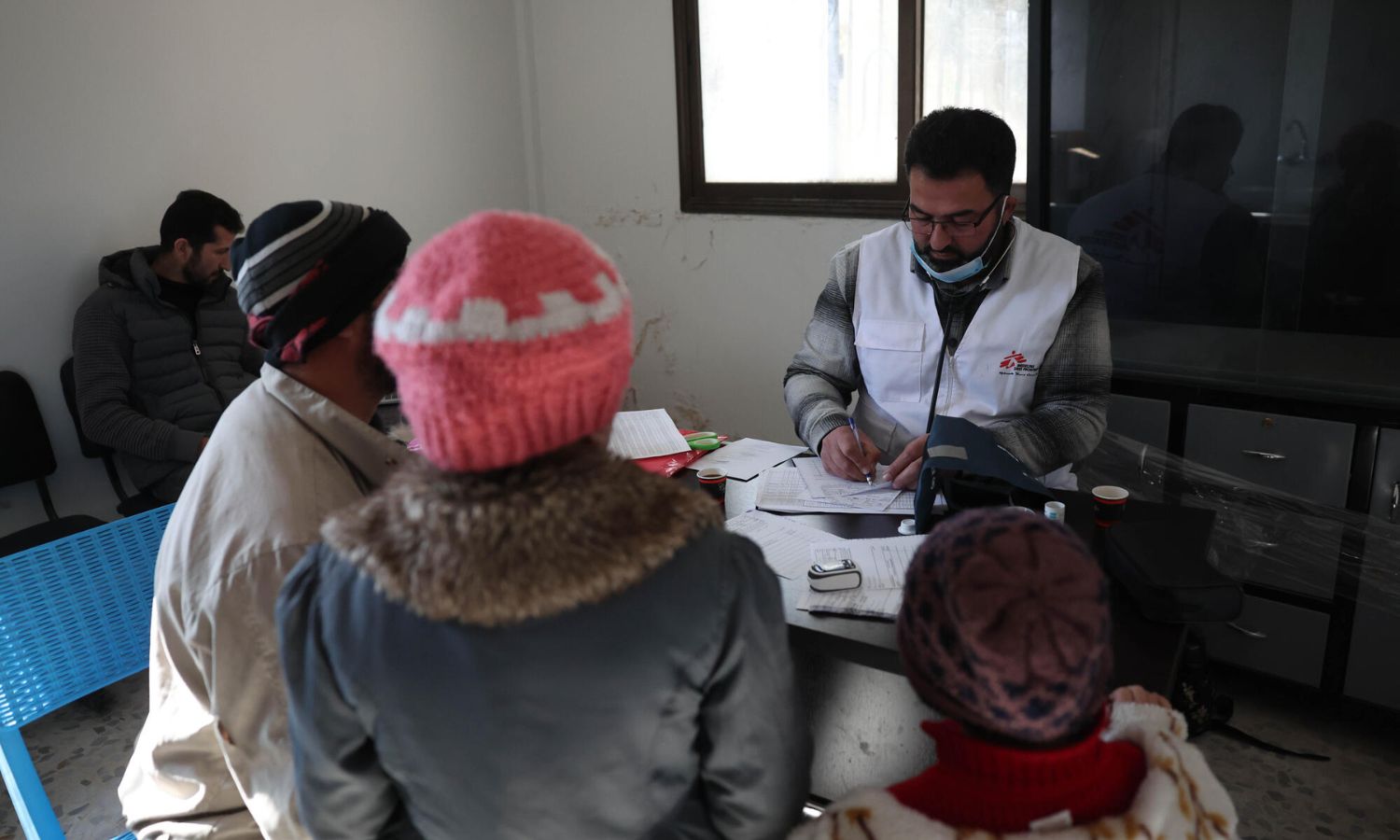



Médecins Sans Frontières (MSF) announced that it has started operating mobile clinics in Eastern Ghouta since January 21.
The organization stated in a statement on Thursday, February 6, that it has received 576 patients, including 77 children under the age of five.
They provided basic healthcare and medical consultations, including medical consultations for treating gastrointestinal infections.
The organization confirmed that Eastern Ghouta is still far from returning to normal life, as its streets are filled with the rubble of buildings, and residents face difficult living conditions, including a lack of clean water, insufficient food, and the absence of sewage and heating infrastructure, exposing them to significant health risks.
Patrick Wieland, head of the Médecins Sans Frontières (Doctors Without Borders) mission in Syria, told Enab Baladi, after meeting with the Syrian Minister of Health, Maher al-Sharaa, on January 30, “We were able to share our concerns and what we are doing in the country with the minister and listen to his recommendations and notes regarding our work in Damascus, Deir Ezzor, Idlib, Aleppo, and coastal areas.”
He added that there is a need for a health assessment and for providing tangible services to residents on the outskirts of Damascus.
Ahmad Rahmo, the organization’s emergency project manager in Syria, told Enab Baladi that there is a plan for emergency response in some provinces, emphasizing the necessity of working fully with the Ministry of Health.
For his part, Bilal al-Sarkibi, the medical reference for MSF in Syria, stated that “families are living amid the ruins of destroyed buildings as if they have come from the Middle Ages. The level of neglect is unbelievable, medical needs are enormous, and access to healthcare is like a race against time.”
He added, “Today, the mobile clinics provide a slight sense of comfort for the residents who have suffered greatly in Eastern Ghouta over the past years.”
Since January 2025, the organization has sent its teams to several cities in Eastern Ghouta, including Douma, Harasta, Zamalka, Hamouriyah, Ein Tarma and Kafr Batna, to provide basic healthcare, medical consultations, and psychological support through mobile clinics.
The organization pointed out that the previous Syrian regime imposed a suffocating siege on the area, leading to widespread destruction and targeting of homes, markets, and hospitals, and preventing the entry of food, water, and medicines.
Between 2013 and 2018, MSF provided remote support to Syrian doctors in Eastern Ghouta by sending medical supplies, financial support, and technical guidance. However, with the escalation of violence, the number of clinics supported by the organization decreased from 20 clinics and hospitals to just one clinic by 2018.
if you think the article contain wrong information or you have additional details Send Correction